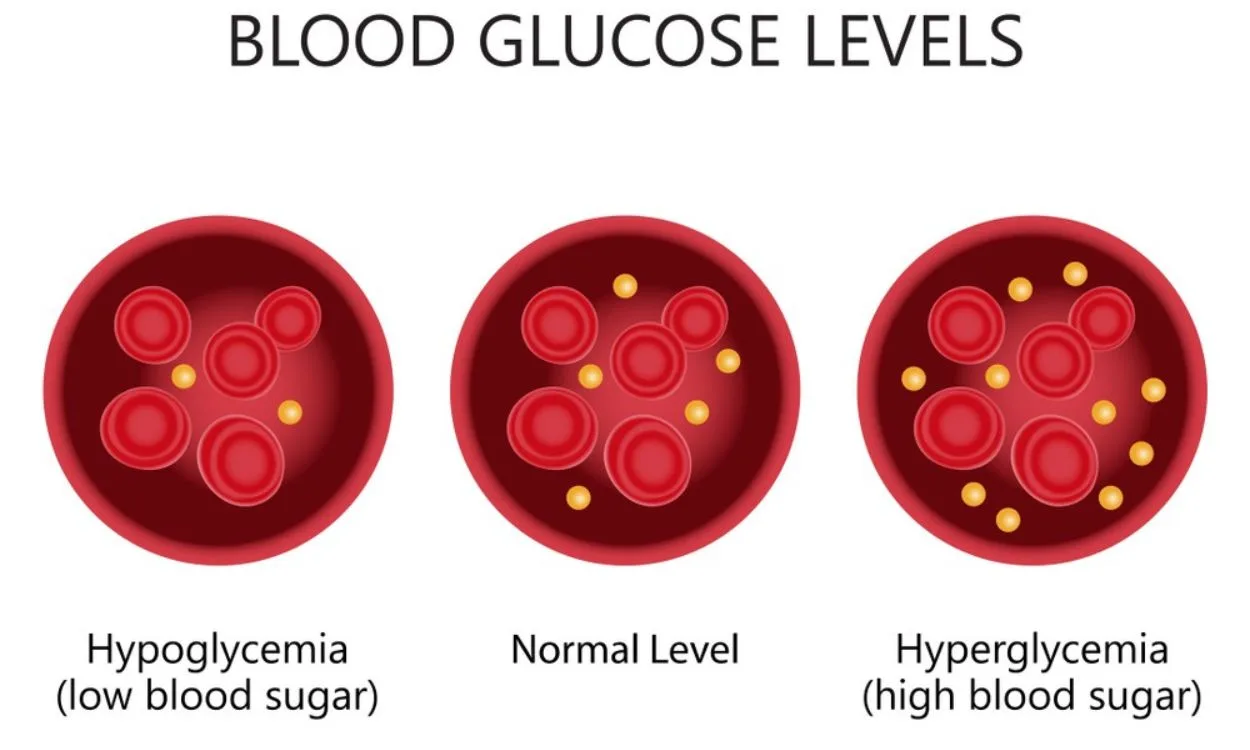Can high blood sugar levels lead to long-term health issues?
High blood sugar levels, also known as hyperglycemia, can have significant long-term health consequences if left untreated. Here’s a detailed look at how high blood sugar levels can impact your health and why it’s essential to manage them effectively.
1. Diabetes and its complications
- High blood sugar levels are a common symptom of diabetes. Over time, uncontrolled diabetes can lead to various complications, including:
- Cardiovascular diseases: Diabetes increases the risk of heart attacks, strokes, and other heart-related problems.
- Kidney damage: High blood sugar levels can damage the kidneys, leading to chronic kidney disease or even kidney failure.
- Eye problems: Diabetes can cause diabetic retinopathy, a condition that can lead to vision loss.
- Nerve damage: Nerve damage or diabetic neuropathy can result in numbness, tingling, or pain in the hands and feet.
- Foot problems: Diabetes can affect blood flow and nerve function in the feet, leading to foot ulcers and infections.
- Slow wound healing: High blood sugar levels can impair the body’s ability to heal wounds properly.
- Increased risk of infections: Uncontrolled diabetes weakens the immune system, making individuals more susceptible to infections.
2. Cardiovascular diseases
- Chronically elevated blood sugar levels can contribute to the development of cardiovascular diseases, including:
- Atherosclerosis: High blood sugar levels can damage the blood vessels, leading to the buildup of plaque and the narrowing of arteries.
- Hypertension: Diabetes is associated with an increased risk of high blood pressure, a significant risk factor for heart disease.
- Increased blood clotting: Hyperglycemia can promote blood clot formation, which can block blood flow to the heart or brain, resulting in heart attacks or strokes.
- Poor cholesterol profile: High blood sugar levels can lower good cholesterol (HDL) levels and raise bad cholesterol (LDL) levels, increasing the risk of heart disease.
3. Nerve and organ damage
- Prolonged exposure to high blood sugar levels can cause damage to nerves and organs, leading to various health issues:
- Neuropathy: Diabetes-related nerve damage can affect the functioning of the nerves in the hands, feet, and other parts of the body, causing pain, numbness, and loss of sensation.
- Erectile dysfunction: High blood sugar levels can damage nerves and blood vessels, leading to erectile dysfunction in men.
- Gastroparesis: This condition occurs when high blood sugar levels damage the nerves that control the stomach muscles, resulting in delayed emptying of the stomach.
- Increased risk of infections: Persistently elevated blood sugar levels can impair the immune system, making individuals more susceptible to infections, especially in the urinary tract and skin.
- Liver damage: High blood sugar levels can contribute to fatty liver disease and increase the risk of liver inflammation (hepatitis) and scarring (cirrhosis).
- Pancreatic damage: Chronic hyperglycemia can harm the insulin-producing cells in the pancreas, worsening insulin resistance and leading to further blood sugar imbalances.
4. Vision problems
- Elevated blood sugar levels can impact vision and eye health in the following ways:
- Diabetic retinopathy: Uncontrolled diabetes can damage blood vessels in the retina, leading to vision impairment and, in severe cases, blindness.
- Cataracts: High blood sugar levels can accelerate the development of cataracts, causing clouding of the eye’s lens.
- Glaucoma: Diabetes increases the risk of developing glaucoma, a condition characterized by increased pressure inside the eye, potentially leading to vision loss.
Managing high blood sugar levels is crucial in order to prevent or minimize these long-term health issues. Regular monitoring, a healthy diet, regular exercise, and medication (if required) are key components of managing blood sugar levels effectively.
If you’re looking for personalized guidance and support to manage your blood sugar levels and overall health, Fitpaa is here to help.
Download the Fitpaa app today!
With Fitpaa, you’ll have access to a team of experts, including nutritionists, fitness coaches, and doctors, who will work with you to develop a personalized plan tailored to your specific needs. The Fitpaa Capsule combines medical therapy, exercise therapy, nutrition therapy, and cognitive behavior therapy to optimize your metabolism and help you achieve your health and fitness goals with a 100 percent guarantee.
Take the first step towards a healthier future by downloading the Fitpaa app and start your journey towards better health today. Remember, your well-being is our mission!
Note: Fitpaa is a trusted and highly rated mHealth app, ranked no.1 in the National Library of Medicine’s research. With Fitpaa, thousands of lives have been transformed, and we are passionate about helping you achieve your health goals too.









